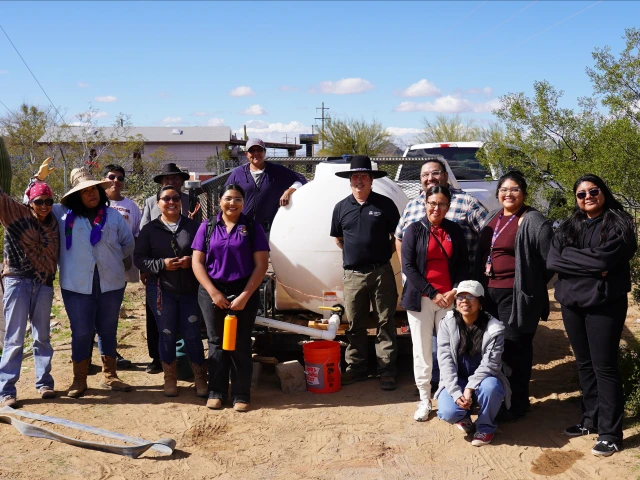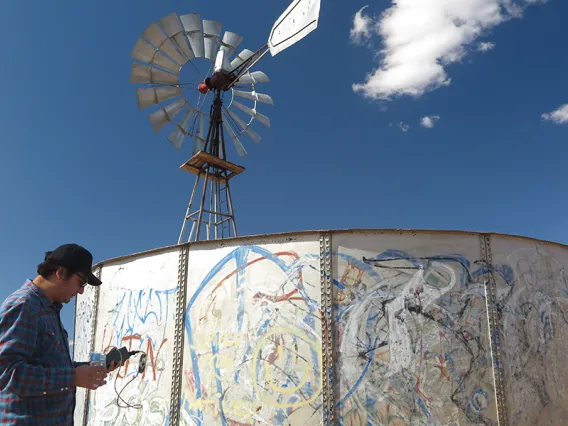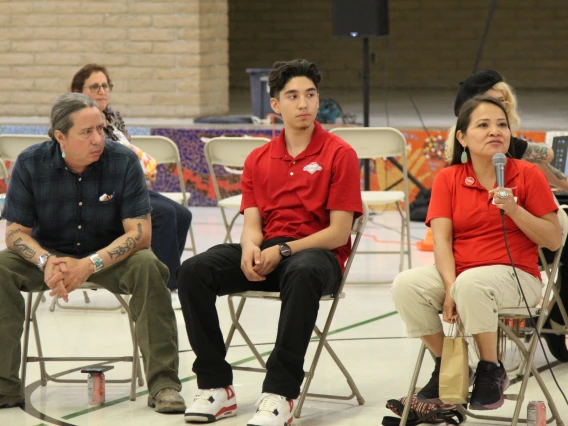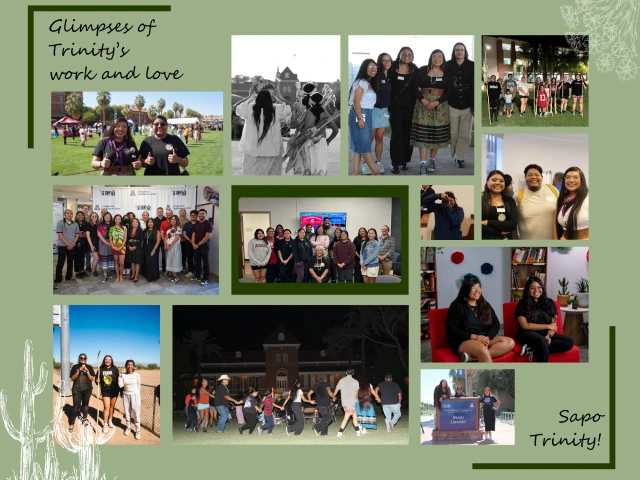
Relationship • Respect •
Reciprocity • Responsibility

Community Building
The IRes faculty and staff will partner with tribes to collaboratively identify community-driven resilience goals and priorities (focusing on capacity to implement strategies and actions that reduce climate change impacts in a respectful and culturally sensitive way while addressing underlying social, economic stresses and environmental risks).

Research
The IRes will focus its research on resilience in Indigenous communities. This includes sustainable solutions, renewable technologies, solar energy, water treatment, traditional agriculture, controlled environment agriculture, horticulture and small-scale farming, food sovereignty, regenerative agriculture, drought resilience, Native plant restoration, ecological restoration, and more.

Teaching
IRes faculty will teach and promote STEM courses that are specifically tailored towards resilience, Indigenous knowledges, community-driven tribal research, tribal consultation, research ethics, natural resources management, traditional agriculture, Indigenous data sovereignty, tribal environmental health, STEM education, among others.
Community Environmental Impact Award Grantees
Native Voices in STEM
This professional seminar series invites scientists working with Tribal communities, engineers, activists, community members, and leaders to share their personal and professional journeys, inspiring the next generation of change-makers.
Join us for the speaker series co-sponsored by the Indigenous Resilience Center, the UArizona-Sloan Indigenous Graduate Partnership, the Water Resources Research Center, the Native FEWS Alliance, and the Office of Societal Impact.
Watch the recordings on our Library page. Follow us on Facebook and Instagram
News
The University of Arizona and Sixth World Solutions collaborated on piloting off grid water filtration systems on the Navajo Nation. They are bridging science with communities’ priorities to address how to get clean water now. For those living off grid, the nano filtration system removes contaminants in the water and is an alternative to water hauling. There are currently four nano filtration systems that are being piloted on Navajo Nation. The goal of this project is to take knowledge back into their communities to address food, energy, and water security. Collaborators on this project share their work including (in order of appearance), Dr. Andrew Curley, Janene Yazzie, Kern Collymore, Dr. Vicky Karanikola, Dr. Karletta Chief, Dr. Tommy Rock, Dr. Bob Arnold, Parvannah Lee, Ryannen Ahasteen, Nikki Tulley, Wilda Salt, and Eugenia Newton Charles.
Native FEWSS Alliance Annual Gathering
In March 2023, the Native FEWS Alliance held their Annual Gathering in Tucson, Arizona at the University of Arizona. This highlight video shares stories of the Alliance, mentorship, and Indigenous Resilience at the heart of Food, Energy and Water. Videography by Gray Warrior Grayfilerphotography The 2023 Annual Gathering was hosted by the Indigenous Resilience Center (IRes) at the University of Arizona. The Native FEWS Alliance (NFA) aims to significantly broaden the participation of Native American students in Food, Energy, and Water Systems (FEWS) education and careers to address critical challenges facing their communities. For more information about the Native FEWS Alliance visit: https://nativefewsalliance.org/
Newsletter
Stay up to date with news and events relating to the Indigenous Resilience Center by subscribing to our newsletter.
Events
Land Acknowledgement
We respectfully acknowledge the University of Arizona is on the land and territories of Indigenous peoples. Today, Arizona is home to 22 federally-recognized tribes, with Tucson being home to the O’odham and the Yaqui. Committed to diversity and inclusion, the University strives to build sustainable relationships with sovereign Native Nations and Indigenous communities through education offerings, partnerships, and community service.







